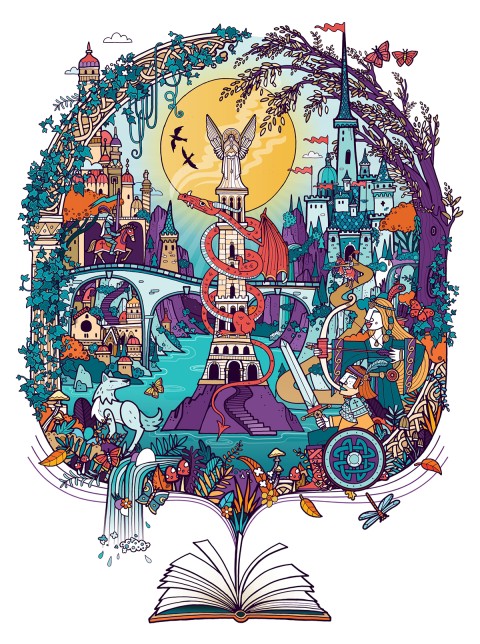Gods who make worlds
By definition, epic fantasy involves a world with a creator. Tad Williams’s Osten Ard is the best since Tolkien’s Middle-earth.

(Illustration by Allan Deas)
Three decades ago, Tad Williams published the final volume in the best epic fantasy trilogy written in English since The Lord of the Rings. Called Memory, Sorrow, and Thorn, the series ran from 1988 to 1993 and totaled over a million words. Half of those words came in the final book—one of the longest books ever to make it onto the New York Times bestseller list.
There is no overselling the significance of Williams’s achievement: the biggest names in fantasy in the intervening decades all acknowledge his influence, from Brandon Sanderson to Patrick Rothfuss to Game of Thrones creator George R. R. Martin. (There is no Westeros without Osten Ard, Williams’s fictional world.) Yet, although Williams is hyper-prolific and widely admired, he has never had the success or name recognition of these other authors. No streaming service has yet broken the bank in adapting Williams’s magnum opus.
Why have these books sold well but never set the world on fire?




